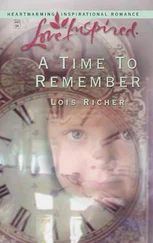Alexander Todd - A Time to Remember
Здесь есть возможность читать онлайн «Alexander Todd - A Time to Remember» весь текст электронной книги совершенно бесплатно (целиком полную версию без сокращений). В некоторых случаях можно слушать аудио, скачать через торрент в формате fb2 и присутствует краткое содержание. Город: Cambridge, Год выпуска: 1983, ISBN: 1983, Издательство: Cambridge University Press, Жанр: Химия, Биографии и Мемуары, на английском языке. Описание произведения, (предисловие) а так же отзывы посетителей доступны на портале библиотеки ЛибКат.
- Название:A Time to Remember
- Автор:
- Издательство:Cambridge University Press
- Жанр:
- Год:1983
- Город:Cambridge
- ISBN:0 521 25593 7
- Рейтинг книги:3 / 5. Голосов: 1
-
Избранное:Добавить в избранное
- Отзывы:
-
Ваша оценка:
- 60
- 1
- 2
- 3
- 4
- 5
A Time to Remember: краткое содержание, описание и аннотация
Предлагаем к чтению аннотацию, описание, краткое содержание или предисловие (зависит от того, что написал сам автор книги «A Time to Remember»). Если вы не нашли необходимую информацию о книге — напишите в комментариях, мы постараемся отыскать её.
A Time to Remember — читать онлайн бесплатно полную книгу (весь текст) целиком
Ниже представлен текст книги, разбитый по страницам. Система сохранения места последней прочитанной страницы, позволяет с удобством читать онлайн бесплатно книгу «A Time to Remember», без необходимости каждый раз заново искать на чём Вы остановились. Поставьте закладку, и сможете в любой момент перейти на страницу, на которой закончили чтение.
Интервал:
Закладка:
A time to remember
THE AUTOBIOGRAPHY OF A CHEMIST
ALEXANDER TODD
CAMBRIDGE UNIVERSITY PRESS
Published by the Press Syndicate of the University of Cambridge
The Pitt Building, Trumpington Street, Cambridge CB2 1RP
32 East 57th Street, New York, NY 10022, USA
296 Beaconsfield Parade, Middle Park, Melbourne 3206, Australia
© Cambridge University Press 1983
First published 1983
Library of Congress catalogue card number: 83-5172
British Library cataloguing in publication data
Todd, Alexander A time to remember.
1. Todd, Alexander 2. Chemists - Scotland - Biography
I. Title
540'.92'4 QD222.T/
ISBN 0 521 25593 7
Preface
In recent years it has fallen to my lot to prepare biographical memoirs of a number of eminent Fellows of the Royal Society and in doing so I have been struck with the paucity of information obtainable about their lives and careers, although at least some of them had been associated with major scientific discoveries and had risen from quite humble beginnings to positions of power and influence. It is comparatively easy to track down speeches and lectures given by individuals, and their contributions to science are recorded in the technical literature. Based on such material one can discuss the impact of a person's work and views, but can give little impression of the man himself or the events which influenced his career. In the light of my experience in seeking such information about others, I decided that I should place on record an account of my own life and career in the hope that the pathway from childhood in Glasgow to a Nobel Prize, the House of Lords, and the Presidency of the Royal Society might prove of some interest. Hence this autobiography.
I would emphasise that I have eschewed detailed discussion and argument about my participation in, and views about, public affairs during the latter part of my career; these are matters more appropriate to a different type of book. I have, of course, included, where appropriate, comments on a variety of problems and institutions with which I have been concerned, and I have added as appendices extracts from my Anniversary Addresses to the Royal Society and my Presidential Address to the British Association for the Advancement of Science. I am indebted to these bodies for permission to reproduce the Addresses which set out at some length my views on a number of issues of public concern. In the main, however, what I have written is a general account of my life until about the end of 1980, with emphasis on events which have shaped my career. I have described these events, including their lighter as well as their more serious aspects, as accurately as I can remember them. Memory is, however, a fickle thing and with the passage of time details can become blurred, or even confused. I do not think there are serious inaccuracies in my narrative, but if I have misquoted anyone I hope he or she will forgive me.
My thanks are due to many colleagues and friends who have encouraged me to write these memoirs, and especially to my wife whose patience and memory are both much better than mine, and to Miss Susan Brownell for the skill and effort which she devoted uncomplainingly to the preparation of the manuscript for publication.
Alexander Todd
Cambridge
October 1982
1. Early days - school and university in Glasgow
I am often asked when I first became interested in science and when I decided to become a chemist. Questions like these are almost impossible to answer, partly because early memories are patchy and highly selective, and partly because one cannot put precise dates to such things.
I was born on the second day of October 1907 in a rather superior red sandstone tenement block known as Newlands Crescent in Cathcart, a southern suburban area of Glasgow. My father, Alexander Todd, was at the time of my birth a clerk in the head office of the Glasgow Subway Railway Company; in due course he became cashier and secretary of the company, a position which he occupied at the time it was taken over by Glasgow Corporation in 1922. Some time after the takeover, he left to become managing director of the Drapery and Furnishing Cooperative Society Limited, whose main base of operations was a substantial department store at Glasgow Cross. He had long been an enthusiastic supporter of the cooperative movement but was strongly opposed to its political affiliation with the Labour Party or, indeed, with politics in any form. His society, known locally as the D. & F. Stores, which paid a ten per cent discount to all comers, was permanently at loggerheads with the politically oriented cooperative movement in Scotland. My father's family originated in southern Scotland and was settled in the area around Strathaven. My knowledge of it is rather sparse because my paternal great-great-grandfather at about twelve years of age was, with his older brother, deserted by his parents at Glasgow Cross in the early nineteenth century and left to fend for himself. This he evidently did with some success for, two generations later, my grandfather was in business as a jobbing tailor living in modest circumstances on the fringe of the Gorbals area where my father was born. My maternal grandmother (nee Ramsay) was the daughter of a farm worker on the Duke of Hamilton's estate at Cadzow in Lanarkshire and came to seek work in Glasgow. There she met and married Robert Lowrie, a foreman in an engineering works at Polmadie where they set up house. In Polmadie my mother (Jane Lowrie) was born within a mile or so of my father's birthplace.
Both my parents were ambitious and hard-working people. My father had only an elementary education and went to work in a Glasgow office at the age of thirteen; from then onwards he was effectively self-taught, apart from some attendance at night classes (none of them concerned with science). By sheer hard work he climbed steadily upwards from this very modest beginning. In all this he was aided and supported by my mother who, likewise, had no more than an elementary education; I believe she worked in a shoe-factory in Glasgow before her marriage to my father. She was a remarkable woman, devoted to her family and backing up her husband in his career. Their story could doubtless be paralleled by many in Scotland; they were determined to battle their way upwards out of the grim surroundings of their youth and succeeded in moving into what might be called the lower middle class. They had a passionate belief in the value of education and were determined that their children should have it at whatever cost. Our family consisted of my sister Jean (died in 1924), five years my senior, myself and my younger brother Robert, born in 1912.
The Glasgow Subway - one of the oldest of underground railway systems - was operated in my childhood by cable traction, and one of my most abiding memories is the characteristic tarry smell of the cable which pervaded not only the stations but also the company's office where my father worked and which was located above the St Enoch Square station. To this day the odour of creosote fills me with nostalgia.
My earliest memory is, however, of a rather scantily clad black woman stirring what appeared to be a large pot of porridge suspended over an open fire; this must have come from a visit to the Glasgow Exhibition of 1910 where one of the more elaborate exhibits was an African village. I have very few other clear recollections of early childhood apart from my entry to Holmlea Public School in Cathcart in 1912 when I was placed in the kindergarten department, only to be removed to a higher form after a few days - more, I fear, because of my physical size than my mental precocity. Our home was situated within a quarter mile of the school but this convenient juxtaposition did not last for long.
Читать дальшеИнтервал:
Закладка:
Похожие книги на «A Time to Remember»
Представляем Вашему вниманию похожие книги на «A Time to Remember» списком для выбора. Мы отобрали схожую по названию и смыслу литературу в надежде предоставить читателям больше вариантов отыскать новые, интересные, ещё непрочитанные произведения.
Обсуждение, отзывы о книге «A Time to Remember» и просто собственные мнения читателей. Оставьте ваши комментарии, напишите, что Вы думаете о произведении, его смысле или главных героях. Укажите что конкретно понравилось, а что нет, и почему Вы так считаете.










